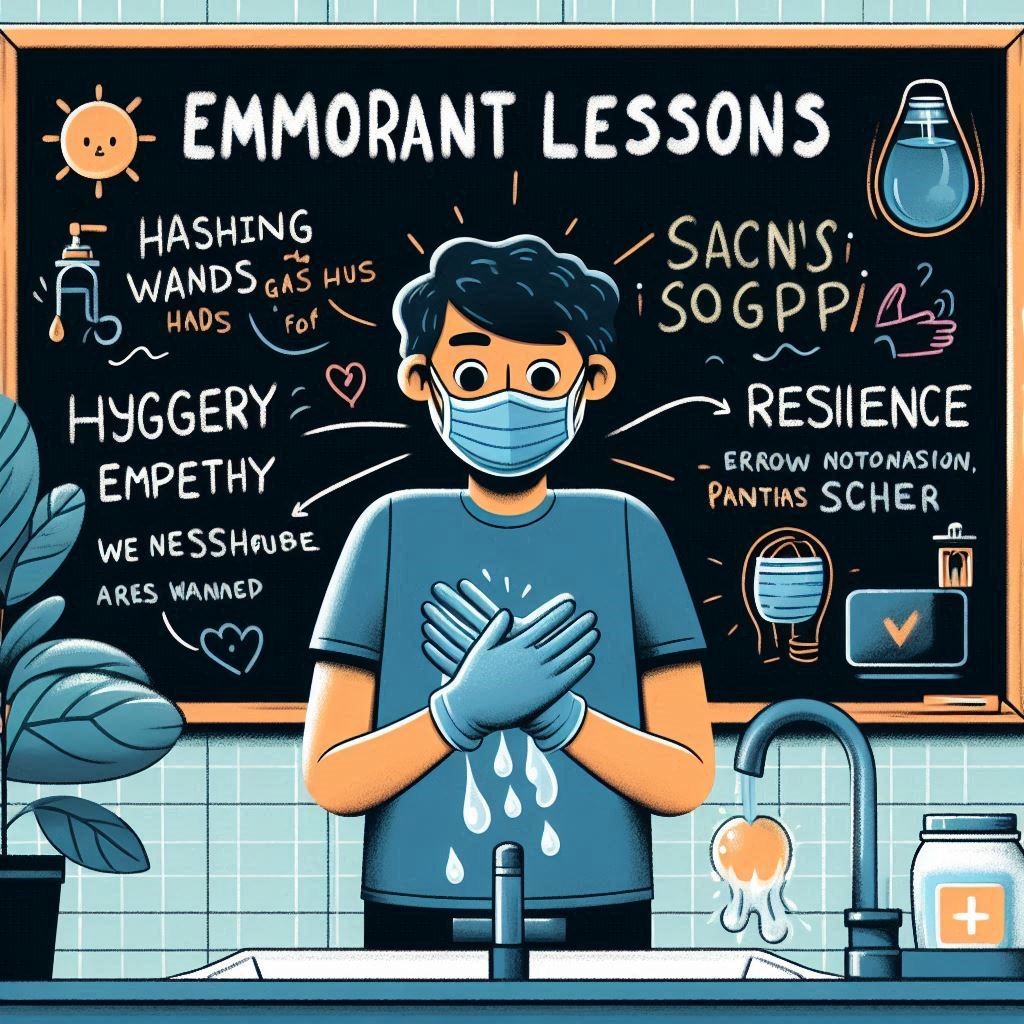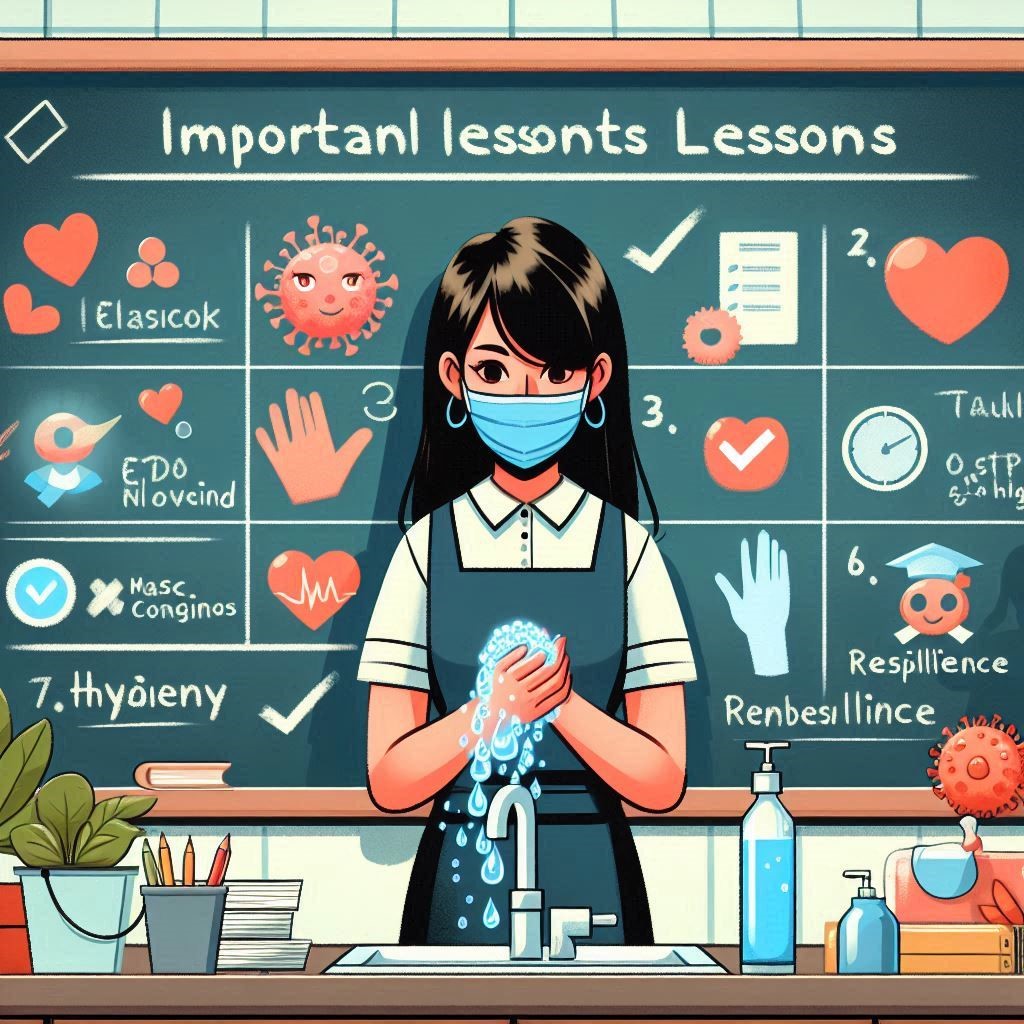The current pandemic and its impact on society
The world stands at a crossroads, reshaped by the relentless grip of a pandemic that has tested our resilience and adaptability. As we navigate through uncharted waters, it’s clear that this crisis is more than just a moment in time; it’s an urgent call to action for humanity. The impact of COVID-19 reverberates far beyond health statistics. It penetrates every layer of society, from our healthcare systems to the economy, touching lives in ways we never imagined.
As we grapple with loss and uncertainty, one thing becomes evident: there are profound lessons lurking within this experience—lessons that could illuminate our path forward if we’re willing to heed them. It’s not enough to survive this storm; we must emerge stronger and wiser for the future challenges awaiting us. Let’s dive into these fatal lessons from this pandemic, exploring how they can help us build a more resilient tomorrow together.
Lessons from history: Previous pandemics and their effects
Throughout history, pandemics have shaped societies in profound ways. The Black Death of the 14th century devastated Europe, wiping out millions and altering social structures. Fear and misinformation spread alongside the disease, highlighting humanity’s struggle with crises.
The Spanish Flu of 1918 set a precedent for public health measures that still resonate today. Quarantines and mask mandates were introduced but often met with resistance. This taught us the importance of clear communication during emergencies.
More recently, the H1N1 outbreak emphasized vaccine development speed as essential. Lessons learned from these events underscore our vulnerability to infectious diseases.
Each pandemic reveals gaps in healthcare systems and societal responses. They remind us that preparation is crucial for minimizing impact when faced with future threats. History serves not only as a record but also as a guide toward resilience against inevitable challenges ahead.
Preparedness: Importance of being proactive in preventing future crises
Preparedness is paramount in the face of potential crises. The lessons learned from this pandemic underscore how proactive measures can save lives and resources.
Being prepared means having plans ready before calamity strikes. It involves training, stockpiling essential supplies, and ensuring that healthcare systems are equipped to handle surges effectively.
Countries that acted swiftly were able to mitigate the spread of infection significantly. This highlights the critical need for early warning systems and robust communication strategies within communities.
Investing in public health infrastructure not only protects against pandemics but also strengthens responses to natural disasters and other emergencies.
Public awareness campaigns play a crucial role too, educating individuals on personal responsibility during crises. When society understands its part, it creates a collective resilience that benefits everyone involved.
Investing in healthcare systems
Investing in healthcare systems is crucial for safeguarding public health. A robust infrastructure can handle crises effectively and reduce the impact of future pandemics.
Funding should prioritize hospitals, clinics, and research facilities. This means upgrading equipment, expanding capacities, and training personnel. When healthcare workers are well-supported, they can provide better care during emergencies.
Innovative technologies must also be integrated into these systems. Telehealth services have proven invaluable during this pandemic by ensuring continued access to medical advice without risking exposure.
Furthermore, preventive care should be a focal point of investment. Educating the public on health practices will lead to healthier communities that are more resilient in times of crisis.
Collaboration with private sectors can enhance resource allocation too. Partnerships between government bodies and businesses could streamline responses when unexpected challenges arise.
Strengthening global cooperation and response efforts
Strengthening global cooperation is crucial in addressing pandemics. An interconnected world requires a unified response. Sharing resources, knowledge, and expertise can save lives.
Countries often work in isolation during crises. This approach limits effectiveness. Instead, forming alliances allows for quicker dissemination of vital information about outbreaks and treatment strategies.
International organizations play a pivotal role in coordinating efforts. They facilitate discussions among nations and guide response protocols based on scientific evidence.
Technology serves as an essential tool in these collaborations. Real-time data sharing enhances awareness of emerging threats and encourages swift action across borders.
Public health initiatives should transcend national boundaries. Vaccination programs or research funding must be collaborative to ensure equitable access for all populations, regardless of economic status.
Fostering trust between nations will empower us to face future challenges together with resilience and determination
The role of technology in crisis management
Technology has transformed the landscape of crisis management in profound ways. Data analytics, for instance, allows us to track outbreaks in real time. This ability can help governments and health organizations respond swiftly.
Social media platforms play a crucial role too. They serve as vital channels for disseminating information during emergencies. Timely updates can inform the public about safety measures and available resources.
Telehealth has emerged as another key player. It enables healthcare providers to offer remote consultations, reducing strain on facilities while ensuring patient care continues uninterrupted.
Moreover, artificial intelligence aids in predicting trends and modeling scenarios that guide decision-making processes.
These technological advancements showcase how innovation enhances our resilience against crises like pandemics. As we move forward, embracing these tools will be essential for effective response strategies worldwide.
Mental health awareness and support during a crisis
Mental health has emerged as a crucial aspect during this pandemic. The stress and uncertainty have taken a toll on many individuals, leading to increased anxiety and depression.
Recognizing emotional distress is vital. Many people may struggle silently, feeling isolated in their experiences. It’s essential to create safe spaces for open discussions about mental well-being.
Support systems are more important than ever. Friends, family, and community organizations must come together to offer understanding and resources. Simple gestures like checking in can make a significant difference.
Accessing professional help should also be prioritized. Telehealth services have made it easier for those in need to seek therapy or counseling without leaving home.
Awareness campaigns can educate the public on recognizing signs of mental health issues while promoting available support channels. By prioritizing mental wellness now, we build resilience against future challenges that lie ahead.
Unveiling the Fatal Lessons in This Pandemic: A Wake-Up Call for Humanity
This pandemic has unveiled stark realities. It’s a wake-up call that we can no longer ignore.
Many of us lived in comfort, believing disaster was always distant. Now, we see the fragility of our systems and relationships. The cracks are evident—healthcare disparities, economic vulnerabilities, and social isolation have all come to light.
Communication gaps emerged like chasms between communities. Misinformation spread faster than the virus itself, sowing confusion and fear among countless individuals.
We must recognize that our individual actions impact collective well-being. A simple mask or vaccination decision can ripple through society in unpredictable ways.
The urgency for empathy is palpable now more than ever. We need each other to navigate uncertainty together.
If we fail to absorb these fatal lessons in this pandemic, history may repeat itself with devastating consequences. It’s time to reflect deeply on what we’ve learned about resilience and humanity’s interconnectedness.
Fatal Lessons in This Pandemic: How They Can Shape a Safer Tomorrow
The current pandemic has exposed vulnerabilities we often overlooked. It served as a stark reminder that complacency can lead to catastrophic outcomes.
By analyzing our reactions, we can identify gaps in preparedness. These insights are essential for building robust systems capable of withstanding future crises.
Health infrastructure must be prioritized and funded adequately. A stronger healthcare system equates to better responses during emergencies.
Collaborative efforts across borders also play a pivotal role. When nations unite, sharing resources and knowledge, the collective strength becomes formidable.
Technology stands out as a game-changer in crisis management. Innovations in data tracking and telemedicine have redefined how we approach health challenges.
Mental health support gained prominence too; it is crucial during turbulent times. Raising awareness ensures people know where to find help when they need it most.
Such lessons pave the way for resilience against whatever lies ahead.
The Untold Fatal Lessons in This Pandemic: Are We Prepared for the Next One?
The current pandemic has unearthed devastating truths about our readiness for crises. Many nations found their healthcare systems overwhelmed, revealing critical gaps in infrastructure and resources.
Communication played a flawed role too. Misinformation spread faster than the virus itself, complicating efforts to manage public health effectively. Trust eroded as conflicting messages emerged from various authorities.
We also witnessed disparities in access to care, highlighting social inequalities that left vulnerable populations at greater risk. It begs the question: are we truly prepared for what lies ahead?
Technology offers hope but demands investment and integration into existing frameworks. We have tools to monitor outbreaks and facilitate rapid responses; yet many remain underutilized or inaccessible.
The lessons learned must not be ignored. As we navigate these tumultuous times, it’s essential to scrutinize every aspect of our preparedness strategy for future pandemics—before another crisis exposes our vulnerabilities again.
Fatal Lessons in This Pandemic: Essential Insights for a Resilient Future
The pandemic has laid bare the vulnerabilities within our society. Each challenge faced offers a chance to rethink our approaches and priorities.
One essential insight revolves around healthcare infrastructure. Investment in robust systems can ensure swift responses to future health crises, saving lives and resources alike.
Additionally, public awareness is crucial. Educating communities about hygiene practices and vaccination benefits fosters resilience against misinformation.
Adapting technology also plays a central role. Innovations such as telemedicine have proven invaluable during lockdowns, offering uninterrupted care when needed most.
Strengthening mental health support cannot be overlooked either. Crises take an emotional toll on individuals; providing resources for psychological well-being is vital for recovery.
Cultivating global cooperation makes us stronger collectively. Sharing knowledge and resources across borders enhances preparedness and response strategies significantly.

Moving forward with the lessons learned from this pandemic
Moving forward with the Fatal Lessons in This Pandemic requires a collective effort. We must embrace the insights gained, both positive and negative. The importance of preparedness cannot be overstated. A proactive stance today ensures we are not caught off guard tomorrow.
Investing in robust healthcare systems is paramount. This includes better funding, infrastructure improvements, and training for healthcare professionals. Every nation should prioritize building resilient health frameworks capable of handling future crises.
Strengthening global cooperation is equally crucial. Collaboration across borders can enhance our response to pandemics. Sharing resources, information, and strategies can lead to swifter recovery times and more effective crisis management.
The role of technology has never been clearer than during this pandemic. From telemedicine to data analytics, tech solutions have transformed how we approach public health issues. Continued investment in these areas will be vital for managing future emergencies effectively.
Equally important is mental health support during crises. Awareness around mental well-being can help communities cope better when faced with adversity.
As society emerges from this global challenge, it’s essential that we take actionable steps based on what we’ve learned about resilience and preparedness—essential elements for a safer tomorrow.










